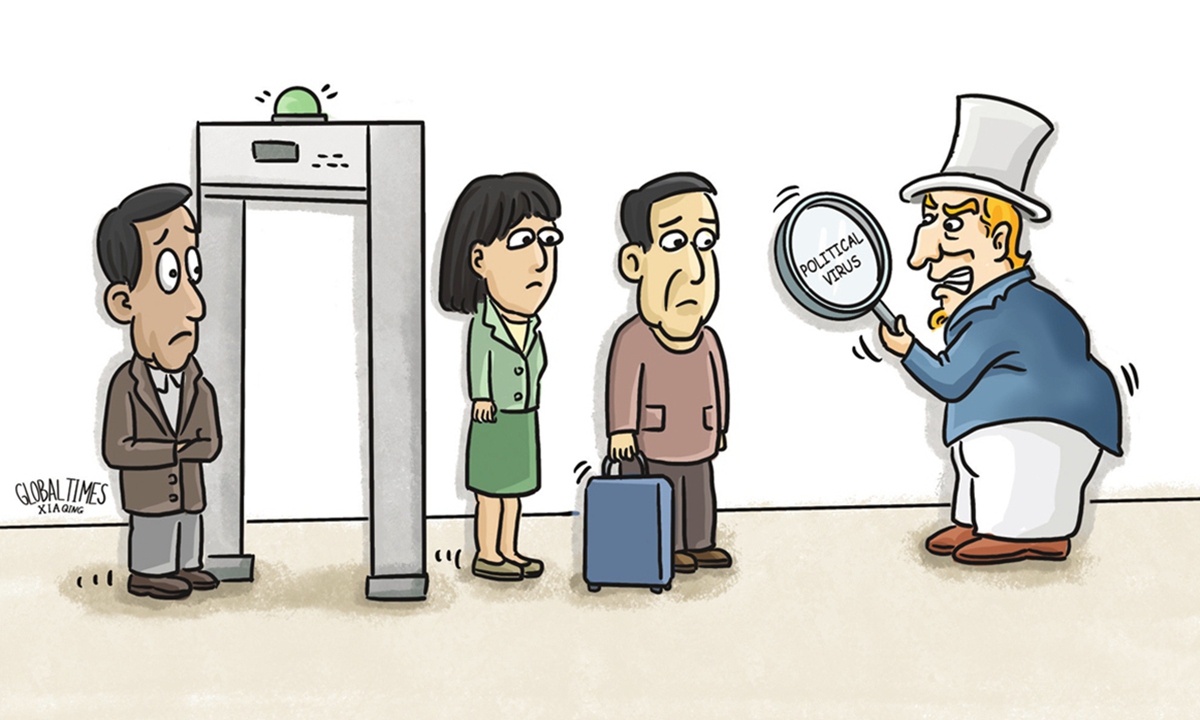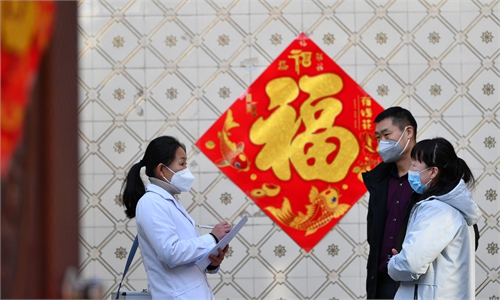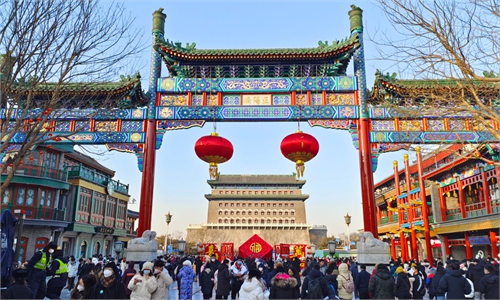Unhealthy civilizational superiority mindset displayed in some countries' COVID travel curbs

Illustration: Xia Qing/Global Times
The COVID-19 epidemic in China has entered a period of low infection with new cases steadily declining, highlighting the effectiveness of prevention work after the country downgraded the management of COVID-19 from Class A to B, senior officials of the National Health Commission (NHC) said on Monday. This indicated that China's three-year fight against the epidemic, from the initial dynamic zero-COVID approach, to later gradual optimization of the COVID response, has produced results that withstood the test.China is now promoting economic recovery with full steam. The prevailing view is that China's reopening will help boost confidence in world economic growth and bolster global economic recovery. Recently, many international investment institutions have revised up their forecast for China's economic growth rate in 2023. For example, the International Monetary Fund has raised its forecast for China's economic growth to 5.2 percent in 2023.
China's victory in the fight against the epidemic is obviously something that the Western media and elites do not want to see. They are even less willing to let the people in their own countries realize that China has done a better job fighting the epidemic than Western government.
For instance, in an opinion article published in the New York Times this week titled "It's as if nothing ever happened here in China," the author reluctantly admitted that "China now says the wave has peaked, and that may be true. Pharmacy shelves are no longer bare. Even Paxlovid has become more available, and I don't hear about overwhelmed hospitals anymore." But the author still tried to emphasized that "scars from the past few weeks remain."
In addition to unwillingness to admit China's great achievement in anti-epidemic fight, some countries are implementing discriminatory entry restriction measures against travelers from China, such as France, which has extended mandatory COVID tests for travelers from China until February 15.
The US and some Western countries evaluate the epidemic situation in China not from the perspective of science, but for discrediting China's image. In fact, they look at all issues related to China with an unhealthy mentality of civilizational superiority. When China has entered the state of normalcy, they are pretending to be on high alert, in order to show they are superior. To be honest, it's a pathetic mindset.
The US was one of the first countries to enter a state of coexistence with COVID-19 since the outbreak began. In September last year, President Joe Biden publicly said that "the pandemic is over." On January 30, he announced that the White House would terminate on May 11 both the public health and national emergencies declared in response to COVID. Against this background, why did the US impose so-called travel restrictions on China? The reason is nothing more than to find a new means for the old routine of isolating China in the post-epidemic era.
In recent years, the internal crisis of national racism in the US has deepened. The Biden administration passed the COVID-19 Hate Crimes Act to crack down on the frequent attacks against Asians since the outbreak of the COVID-19 epidemic. If Washington still insists on such a restrictive policy, it will become a new trigger to arouse xenophobia, which will do nothing but harm to future exchanges between China and the US.
Such an approach is also not in line with public opinion around the world. There is a growing desire for economic recovery and a return to good, peaceful, open international exchanges and globalized life. In fact, the majority of the American people want to resume normal interactions and exchanges with China, to be able to come to China to travel, do business, and participate in cultural and academic exchanges, etc. Discriminatory restrictions are deepening the impediments to international exchange, and even bringing unwarranted ideological intimidation to the American public.
With the global economy in desperate need of recovery, why is the US' ideology toward China continuing down a path of intense confrontation? It is hard not to suspect that such measures are not only a farce but a conspiracy, and that US politicians are manipulating epidemic as a tool to attack China, rather than caring about the well-being of the people on both sides.
The author is a reporter with the Global Times. opinion@globaltimes.com.cn



